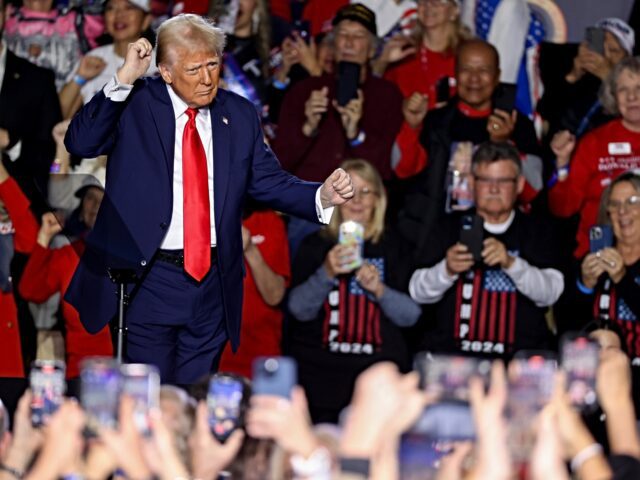President Donald Trump marked the end of a whirlwind first week back in office with a stop in Las Vegas to discuss his plan to eliminate taxes on tips—one of his significant promises for the 2024 campaign. During an enthusiastic gathering at the Circa Resort and Casino, supporters cheered as he addressed the economic confidence he believes is burgeoning in the United States. “America’s decline is over,” he asserted, echoing sentiments from earlier inauguration speeches.
Taking office just days ago, Trump has swiftly undone numerous policies established by his Democratic predecessor, Joe Biden. His agenda also includes a substantial effort to restructure and downsize the federal bureaucracy.
A Focus on Disaster Relief and Economic Policy
As part of his tour, Trump visited disaster-affected areas in North Carolina and California, where he pledged federal aid to assist communities recovering from hurricanes and wildfires. Notably, he also suggested the closure of the Federal Emergency Management Agency (FEMA), emphasizing a broader intent to reshape government functions.
Back in Las Vegas, Trump reiterated his commitment to abolishing taxes on tips—a proposal he first introduced in June while seeking support from service workers in Nevada, where the hospitality industry accounts for over 20% of employment. “Your tips will be 100 percent yours,” he proclaimed, humorously remarking that he might pursue workers for not reporting their tip income from the past decade.
Bipartisan Support in Tax Policy
Interestingly, Trump’s rival for the presidency, former Vice President Kamala Harris, has also committed to eliminating taxes on tips, signaling a rare point of agreement amid the broader political divide. However, Harris’s campaign clarified that such a policy would require legislative action from Congress.
Michael McDonald, chairman of the Nevada Republican Party, highlighted the positive reception of Trump’s proposal among locals grappling with rising costs for essentials like food and gas. “He cares about the no tax on tips, no tax on Social Security. That resonated with the community, especially as we are all feeling the pinch,” he commented during a local TV interview after welcoming Trump.
Implications of Trump’s Tax Proposals
Trump’s ambitious tax proposals, which include extending previous tax cuts and eliminating taxes on overtime and Social Security benefits, raise significant economic concerns. The nonpartisan Committee for a Responsible Federal Budget estimates that such measures could add approximately $7.5 trillion to the national debt over the next decade.
To fund these expansive tax cuts, Trump is advocating for increased tariffs on imported goods—a strategy that may face pushback from some Republican leaders wary of dependency on tariff revenue. Days before his inauguration, congressional Republicans voiced concerns that his tax-cut agenda might conflict with the worsening bond market conditions, potentially hampering the U.S. government’s ability to manage its escalating debt.
As Trump lays out his policy vision leading into the 2024 election, his commitment to eliminating the tax on tips is just one piece of a broader tax reduction strategy. How these proposals will be received by Congress and the public remains to be seen, as economic realities and political dynamics continue to evolve.
For further details, clarification, contributions or any concerns regarding this article, please feel free to reach out to us at editorial@tax.news. We value your feedback and are committed to providing accurate and timely information. Please note that all inquiries will be handled in accordance with our privacy policy



